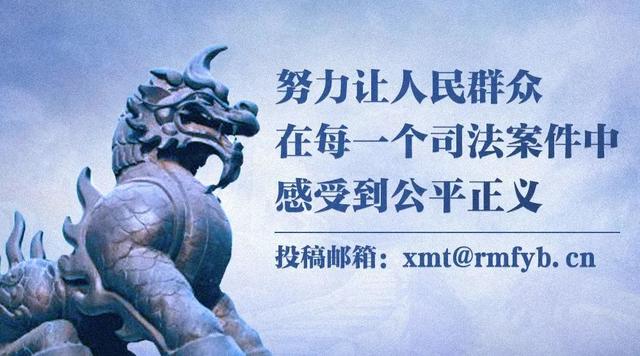老赵继续翻译讲述美军记载的长津湖历史资料,虽然不一定客观,但至少都是参战老兵的回忆,因不是美国官方记载,仅仅都是回忆(对美国士兵的勇气一般都会吹嘘夸大,读者自己斟酌)所以参考价值很大,极其珍贵,也能从侧面看到我英勇无畏的中国人民志愿军战士在冰天雪地里那场惊天动地的牺牲的历史原貌。
闲话不说,直接翻译。
The Battle of the Chosin Reservoir was a two-week-long bloodbath during which an estimated 120,000 Chinese troops surrounded some 30,000 American, British, and Republic of Korea (ROK) forces high in the mountains of North Korea. The United Nations forces launched what they perceived to be their final offensive into North Korea but were surprised by an overwhelming Chinese force that forced their retreat down the Korean peninsula.
Fighting conditions were a living nightmare: fresh snow on the mountains, below-zero temperatures, frigid windchill, icy roads, and a determined enemy. The fierce battle that spanned from Nov. 27 to Dec. 13, 1950, is viewed as one of the most iconic examples of grit and sacrifice in US Marine Corps lore.
We put together three little-known stories about the heroic “Chosin Few” who fought valiantly and escaped with their lives after nearly 6,000 of their comrades were deemed either missing or killed in action.
译文:长津湖战役是一场长达两周的血战,在这场战役中,约12万名中国志愿军包围了位于朝鲜狼林山脉盖马高原上的山区约3万名美、英、韩东线部队(老赵注:陆战一师25000人,英国和韩国部队5000人,符合实际)。陆战一师所属联合国军向朝鲜发动了他们认为是最后一次进攻的行动,但令美军吃惊的是,中国军队压倒性优势迫使他们不得不沿着朝鲜半岛东麓崎岖寒冷的地方撤退。
长津湖的战斗环境回忆起来,是一场活生生的噩梦:山上是刚下的大雪,零下三十几度的温度,刺骨的寒风,结冰的道路,还有一个坚定的敌人。这场从1950年11月27日持续到12月13日的激烈战斗,被视为美国海军陆战队历史上最具象征意义的勇气和牺牲精神范例之一。
我们将三个鲜为人知的故事放在一起,讲述英勇的“长津活着的少数人”(老赵注:Chosin Few,这是美国老兵在长津湖战斗后噩梦一样专有名词,Few英文原意是几乎没有,很少的意思,发音和中国的“湖”韵母相同,也有类似长津湖的意思,但强调活下来的都是极少数人)的故事。在近6000名战友被认为失踪或在战斗中丧生后,他们英勇战斗,并侥幸逃脱。
FIRSTHAND ACCOUNTS FROM “THE FROZEN CHOSIN”
The “Frozen Chosin” were US Marines who fought to survive in the harsh climate of the Chosin Reservoir, located just 60 miles from the Chinese-North Korean border. Those who returned home to safety referred to themselves as the “Chosin Few.” The frozen hellscape impacted weapons, mortar shells, radios, and medicine. Corpsmen even had to carry morphine syrettes in their mouths to keep them thawed enough to be useful when treating the wounded.Veterans of the battle later shared what they could see and hear.
《冰冻的长津湖》第一手资料
“冰冻的长津”是美国海军陆战队员记忆中的模样,他们在距离中朝边境仅90公里的长津水库(Chosin Reservoir)的恶劣气候中生存下来。那些回到三八线以南安全地带的人称自己为“长津胡活下来的少数人”。冰冻的地狱之境影响了美军武器、迫击炮弹、无线电和药品的使用和效能。医护兵甚至不得不把吗啡针塞在嘴里,以使它们解冻,以便在治疗伤员时有用。战斗的老兵后来分享了他们的所见所闻。
“And then came another guy with a bayonet,” Cole told Deseret News in 2015. “I knocked his bayonet to the side just as he pulled the trigger and it blew out the back of my forearm. Then I cut his throat with the KA-BAR. I went into shock. My tongue swelled up and I couldn’t talk. I thought I was going to die. I should have been dead a dozen times.”
AN UNUSUAL HONOR
John Page Medal of Honor coffee or die
Lt. Col. John Page was posthumously awarded the Medal of Honor for his unusual combination of heroic actions during the Battle of the Chosin Reservoir. Photo courtesy of Defense.gov.
Lt. Col. John U. Page from the US Army’s 52nd Transportation Truck Battalion, X Corps Artillery, was awarded the Medal of Honor for actions on Nov. 29, 1950, near the Chosin Reservoir. Page was on a routine mission establishing traffic control along the main supply route to 1st Marine Division positions and some Army elements on the Chosin Reservoir plateau. Instead of returning to the X Corps Headquarters at Hamhung, he chose to stay and aid an isolated signal station that was under threat of being cut off from the rest of the Marines.
“……突然来了一个拿着刺刀的志愿军,”科尔在2015年接受《沙漠新闻》采访时说,“就在他扣动扳机的时候,我把他的刺刀打到一边,刺刀已刺穿我前臂后部。然后我用军用匕首割了他的喉咙。我昏迷了。舌头肿了说不出话来。我以为我要死了。其实在长津湖我差不多死了十几次了。”
美国最高战斗英雄荣誉获得者约翰·佩奇
中校约翰·佩奇(John Page)因其在长津湖战役中非凡英雄行为而被追授荣誉勋章(相当于中国志愿军的黄继光特级战斗英雄荣誉),那么我们就看一看他有哪些被美国膜拜的英雄壮举。

中校约翰·佩奇(John Page)阵亡
1950年11月29日,美国陆军第十军第52运输卡车营炮兵中校约翰·佩奇因在长津水库附近的行动而被授予荣誉勋章。佩奇当时正在执行一项例行任务,在主要补给路线上建立交通管制,目的地是海军陆战第一师的阵地,以及长津水库高原上的一些陆军部队(北极熊团等)。他没有回到位于咸兴郡第十军总部,而是选择留下来帮助一个孤立的信号站摆脱志愿军的追击,这个信号站面临着与其他海军陆战队被切断联系和包围的威胁。

葫芦岛老赵原创长津湖地图。转载者请告知老赵或者注明
He rescued his jeep driver, pulling him away from an ambush near a destroyed bridge, and moved to reach the surrounded Marine garrison at Koto-ri. He volunteered to train a force of US Marines and soldiers. Page and his newly trained fighting force prepared a makeshift airstrip on frozen ground in order to evacuate casualties. On two separate occasions he mounted the rear of a tank and manned the machine gun turret to defend the improvised airstrip from oncoming assaults.
A few days later on Dec. 3, 1950, Page dropped hand grenades onto Chinese positions while aboard a low-flying light observation plane. After 10 days of constant fighting, Page flew to Hamhung to arrange for artillery support. He again mounted an abandoned tank and fired the tank’s mounted machine gun at enemy forces until the enemy gunfire ceased. On the night of Dec. 10, Page bravely fought through the kill zone of an ambush and single-handedly surprised the hostile force, inflicting heavy casualties. He continued to fight until he was mortally wounded.Page’s actions, from mounting a tank’s machine gun to dropping hand grenades into enemy foxholes from a low-flying plane, were a distinctive display of heroism.
他救出了自己的吉普车司机,把他从一座被毁桥梁附近的伏击中拉了出来,然后前往被包围的长津湖撤退路线上的古土里海军陆战队驻地。他自愿训练一支美国海军陆战队士兵和陆军士兵的小队。佩奇中校和他新训练的战斗队在冰冻的地面上准备一个临时飞机跑道,以让飞机撤离伤亡人员。有两次,他分别登上一辆坦克的后部,操纵机枪炮塔,以保护简易机场免受即将到来的志愿军的攻击。
几天后,也就是1950年12月3日,佩奇中校在一架低空飞行的轻型观测飞机上向中方阵地投掷了手榴弹。经过10天的不间断持续战斗,佩奇又飞到咸兴郡(美军后方)安排炮兵支援。他再次登上一辆废弃坦克,用坦克上的机枪向中国军人开火,直到敌人机枪停止射击。12月10日晚,佩奇中校勇敢地穿过伏击区,单枪匹马地突袭敌方部队,造成中国军人重大伤亡。他继续战斗直到受了致命的伤,然后阵亡。佩奇中校的行动,从发射坦克机枪到从低空飞行投掷手榴弹向敌人散兵坑,都是典型的英雄主义表现。
,




